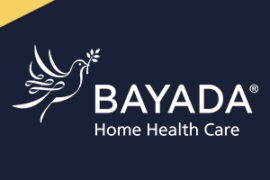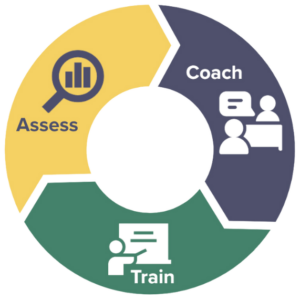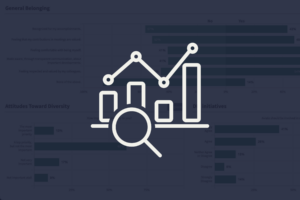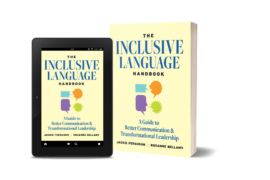Asking questions of one’s coworkers is a business basic and a common, everyday occurrence. Successful companies foster a culture where all employees feel comfortable openly communicating. In particular, diversity, equity, and inclusion (DEI) programs help ensure that employees experience their workplace as a safe and supportive environment for talking with teammates.
Nevertheless, when an employee directs a question to a coworker about a particular group of people because they perceive their coworker to be part of that group, the conversation may quickly become uncomfortable. While the asker may feel their question is innocent and/or well-intentioned, the person being asked may experience the question as overly intrusive or even painful. The question itself may create a sense of power or privilege imbalance between the questioner and the questioned – whether it concerns race, ethnicity, religion, disability, or any other facet of diverse life experience. The person asked may feel forced into the unreasonable position of being spokesperson for an entire group.
These kinds of questions may generate the feeling in those who are asked that “it’s not my job to educate you” – meaning people who face discrimination should not also be made to bear the burden of educating those from groups that bring discrimination to bear.
If you are a DEI leader at your company, it is your job to be an educator. What realistic and practical steps can you take to help employees replace these dead-end Q&As with constructive and inclusive conversations? At the corporate level, what can you do to integrate DEI values into all aspects of your company’s operations?
Regarding one-on-one employee conversations, let’s look at three common, real-world scenarios:
Scenario #1: It’s Personal
A co-worker asks their colleague a personal question, such as: “What happened when you first told your parents that you’re gay?”
Suggestions to DEI Leaders:
- As a DEI educator, reassure all employees that your company considers each person’s unique diversity and life experiences to be just that – personal. Employees are responsible for being collaborative co-workers, but not for sharing information they’d rather keep private.
- Using this or similar examples, discuss how personal questions of a co-worker can be intrusive, stressful, or even painful.
- Offer your employees ways to respectfully deflect personal questions with brief, general responses, such as: “Without going into my personal situation, I know many people whose families were not understanding or accepting, at least initially. But each person’s story is unique.”
- Suggest to employees that bringing their questions to employee resource groups (ERGs), within your organization can help everyone to become better educated and supported.
Scenario #2: Global Questions
A co-worker asks their colleague a global question, such as: “What do people with your physical disability think should be changed in our society?
Suggestions to DEI Leaders:
- As a DEI educator, reinforce to all employees that one individual cannot be expected to serve as the spokesperson or sociological expert for everyone in a societal group.
- Discuss how these kinds of questions tend to position questioned co-workers as part of a less privileged group relative to the questioner.
- Offer your employees ways to respectfully answer such questions from their individual perspective, such as: “I obviously can’t speak on behalf of millions of others, but I can give you my personal opinion, if that’s what you’re asking.”
- Again, suggest that employees with questions seek more information and support from ERGs within your organization.
Scenario #3: Keeping it Work-Related
A co-worker asks their colleague a work-related DEI question such as: “How do you think our company’s products/services can best serve people in the [fill-in-the-blank] community?” Exploring the answers to these kinds of questions adds tremendous value to your company by leveraging the positive power of diversity effectively.
Suggestions to DEI Leaders:
- As a DEI educator, confirm to all employees that your company’s commitment to diversity and inclusion includes building a workforce that mirrors the communities you serve.
- Discuss how a diverse workforce can be an incredible asset and a source of valuable insights for gaining and retaining great customer relationships.
- Offer employees avenues for sharing their input with relevant managers and internal teams. For example, if a new office is scheduled to open in an employee’s home neighborhood, or an ad campaign is under development focused on their community, connect employees with the relevant project team(s) to share their insights and recommendations.
At a corporate level, here are additional suggestions for what you can do as a DEI leader to turn employee questions into productive conversations:
- Consider creating employee resource groups, also known as ERGs, organized around diverse community segments. These groups can ensure a point of inclusion, connection, and pride for employees who identify with the group.
- ERGs can be an asset to your company by providing guidance and insights in areas including corporate policies and messaging, marketing communications, new business development, customer relationship development, and recruiting strategy. For these reasons and more, it is a best practice to integrate ERGs directly into your business strategy.
- ERGs can also serve as an educational resource for employees seeking to increase their knowledge and understanding – a constructive alternative to expecting an individual colleague to fulfill that role.
- Support the vitality of these groups by providing budget for community-related events, memberships in relevant local or national groups, or attending conferences. These points of connection will enrich your company’s DEI culture.
- Advise employees to seek guidance from Human Resources (HR) should they experience a DEI-related issue on the job.
- Advocate for diversity in the staffing of your HR Department so that it mirrors the diversity of your workforce.
- Provide DEI training for your company’s HR team. Encourage a collaborative, teamwork approach where each HR team member is cross-trained in cultural competency with multiple diverse communities.
- Encourage a collaborative relationship between your company’s HR and DEI teams. For example, HR can share de-identified feedback regarding any DEI concerns brought to them by employees. In times of community crisis that affect your workforce – for example, natural disasters or civil unrest—your DEI and HR teams can co-sponsor voluntary group sessions that provide employees with an opportunity to connect for discussion and support.
As a next step, consider where your employees turn today with their DEI-related questions. Use one or more of the above suggestions to ensure that they have access to constructive conversations and helpful answers.
Susan Unger is a TDM partner and senior management consultant who specializes in assisting client organizations to grow profitably. For more than 20 years, Susan has served nonprofit organizations, foundations, and businesses in California, Oregon, and nationally.














